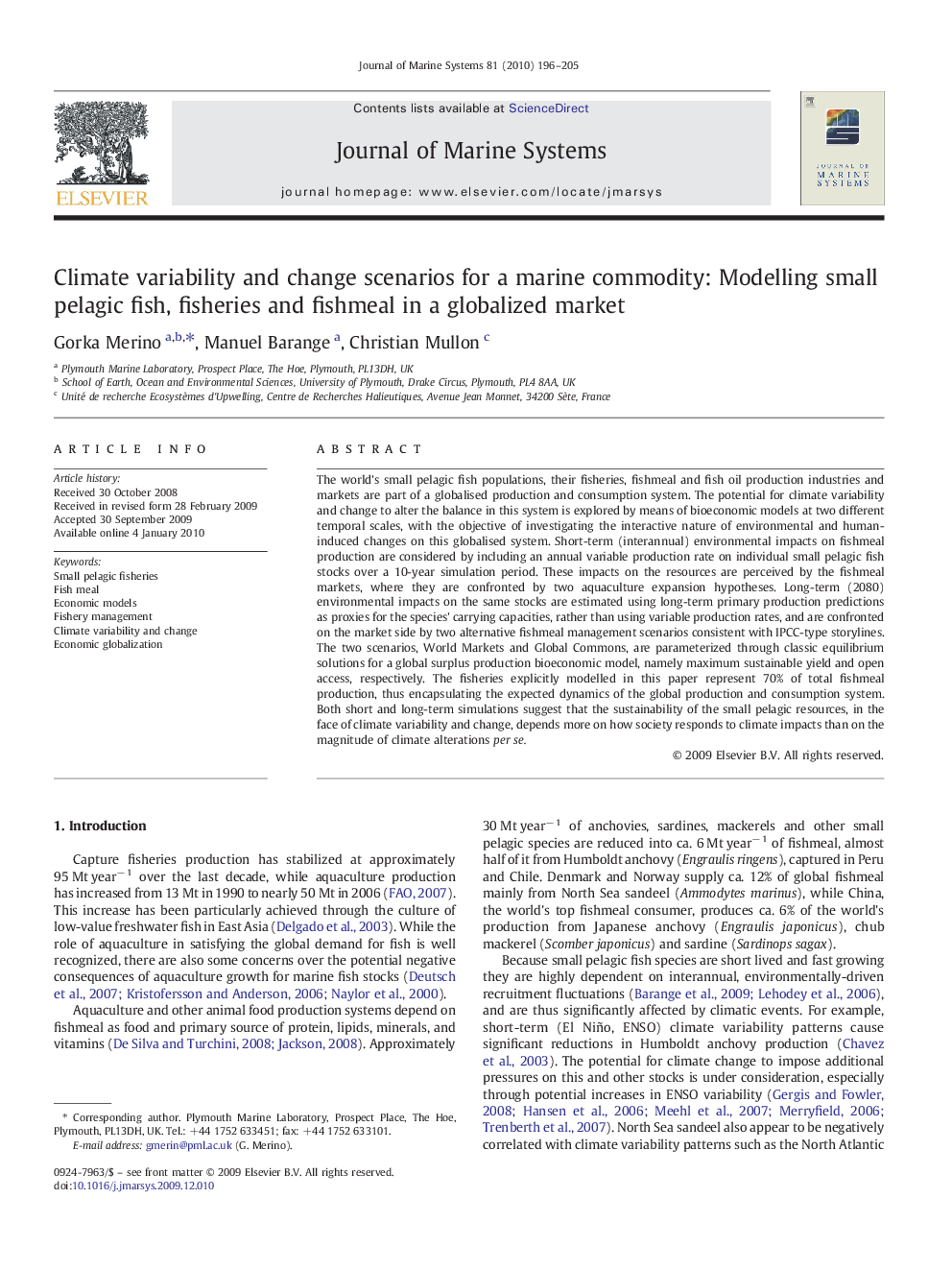| Article ID | Journal | Published Year | Pages | File Type |
|---|---|---|---|---|
| 4548590 | Journal of Marine Systems | 2010 | 10 Pages |
The world's small pelagic fish populations, their fisheries, fishmeal and fish oil production industries and markets are part of a globalised production and consumption system. The potential for climate variability and change to alter the balance in this system is explored by means of bioeconomic models at two different temporal scales, with the objective of investigating the interactive nature of environmental and human-induced changes on this globalised system. Short-term (interannual) environmental impacts on fishmeal production are considered by including an annual variable production rate on individual small pelagic fish stocks over a 10-year simulation period. These impacts on the resources are perceived by the fishmeal markets, where they are confronted by two aquaculture expansion hypotheses. Long-term (2080) environmental impacts on the same stocks are estimated using long-term primary production predictions as proxies for the species' carrying capacities, rather than using variable production rates, and are confronted on the market side by two alternative fishmeal management scenarios consistent with IPCC-type storylines. The two scenarios, World Markets and Global Commons, are parameterized through classic equilibrium solutions for a global surplus production bioeconomic model, namely maximum sustainable yield and open access, respectively. The fisheries explicitly modelled in this paper represent 70% of total fishmeal production, thus encapsulating the expected dynamics of the global production and consumption system. Both short and long-term simulations suggest that the sustainability of the small pelagic resources, in the face of climate variability and change, depends more on how society responds to climate impacts than on the magnitude of climate alterations per se.
